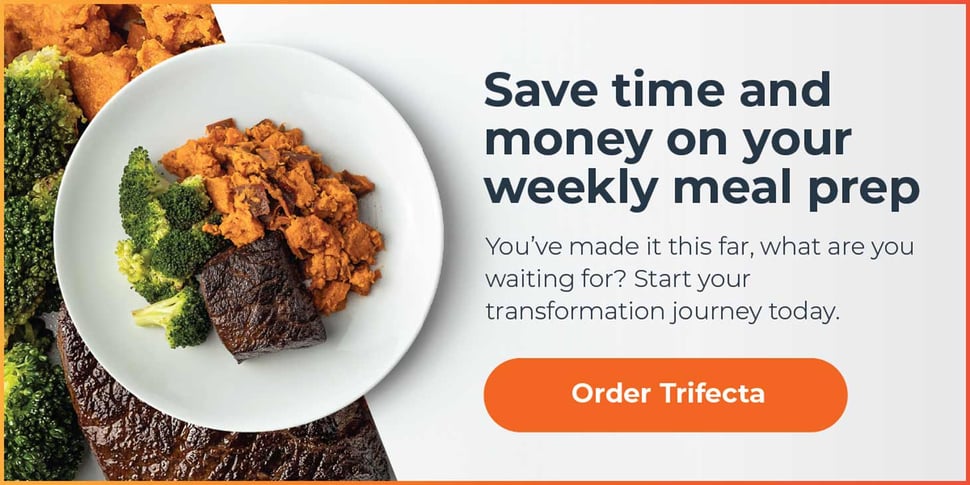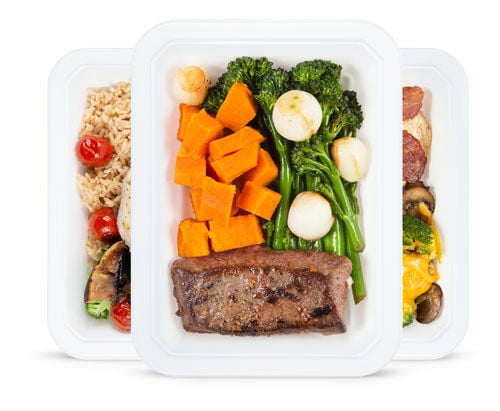There has been a lot of hot debate surrounding the latest plant-based documentary: The Game Changers, produced by James Cameron and featuring James Wilks, a former MMA fighter. The film makes many strong claims for a vegan diet and against meat-based diets, ruffling feathers across multiple areas of nutrition. Let's unpack this a bit.
Preface: The Problem With Nutrition Documentaries
Before we get into what the film actually got right, there is something to be said here about documentaries in general. Films are a great way to spread a message and potentially provide education to the masses, but documentaries aren't typically the best source of science-backed advice for the following reasons:
They Are Designed to Entertain
Documentary films are visual stories designed to make you feel (usually fear or anger), win your approval, and entertain you. Without their ability to evoke emotion in the audience, they would be pretty boring. No one wants to sit through two hours of some guy telling you that eating more vegetables can reduce your risk of heart disease.
They've got to spin it, to weave a tale that is engaging and gets you on board emotionally. To find new angles and shed light on a topic in a unique way that people care about.
Documentaries can toy with your heartstrings, but that’s exactly why they work.
However, when it comes to diets, a lot of us already have enough morals and screwed-up emotions attached to what we eat. We don’t need more of this, we need less.
The Science is Often Cherry Picked
When you own the story, it's easy to only show what supports the narrative you want to share. Documentaries rarely present science from both sides through an unbiased, comprehensive lens. Instead, they pick out what’s going to get the most attention and highlight that.
There was actually quite a bit of positive research missing from the film that supported their message, as well as plenty of studies that didn’t. The point is, a lot of science was missing.
Additionally, the science they did highlight was not very strong to begin with. Enough to make any expert cringe. And there are no laws regulating what gets shared, left out, or what biases get disclosed in these films. But that's a whole other argument to get into.
They Tend to Be Biased
Never mind the fact that this film was clearly geared towards a certain demographic - men who like hamburgers - but many of the people showcased as experts or involved in the film actually profit off of vegan diets in some way.
It’s really no different than a dairy farmer making a movie to show how milk is one of the healthiest foods on the planet. Evidence that the farmer, his whole family, and many others can attribute their growing health to eating and drinking dairy products from his farm.
What the Film Got Right
Regardless of the fact that not a single dietitian was featured in the film, a lot of the science was skewed towards a certain agenda, and there are a lot of questions left unanswered, the film still has some valid points. If you can look past the propaganda, here is what you can learn:
Plants (AKA Fruits and Vegetables) are Good for You
The term plant-based is used a lot in the film to hint at a vegan diet, but plant-based and veganism aren't quite the same thing. Nonetheless, including more plants in your diet is a great way to increase your nutrition intake, promote increased energy, improve your mood, and better your heart health (1,2,3,4).
Additionally, eating more fruits and vegetables has been associated with a reduced risk of certain types of cancer (5,6).
However, it is crucial to note that eating only plants isn’t necessarily the best approach for everyone. Meat, fish, and dairy can also provide essential nutrients and potential health benefits (5,6,7,8,9,10,11,12).
Not to mention, ideal macro balance and overall diet needs can vary drastically from one person to the next based on many different variables.
Learn more about the differences between vegan and vegetarian diets as well as other styles of plant-based eating here.
Carbs Can Be an Important Source of Fuel for Athletes
Alas! Carbs are back baby! But seriously, sports nutritionists and athletes have known for decades that carbs are a valuable source of fuel for performance.
In the documentary, the word carb is often replaced with "plants" because carbohydrates come from anything that grows out of the ground - primarily plants. And yes, eating more fruits, starchy veggies, whole grains, beans, and legumes can be of great benefit to anyone who is very active.
Higher carb intake, along with increased nutrient intake, is a major reason why some athletes can do fairly well on a vegan or plant-based diet.
To clarify further, as mentioned in the film, protein itself is not a great source of energy for sports - it's pretty much your last resort for fuel. But what the film failed to recognize is that higher protein intakes are still recommended for building and maintaining lean muscle mass in active individuals.
Learn more about vegan diets for performance here.
Improving Your Nutrition Can Improve Your Health
The film used a lot of anecdotal evidence (aka this worked for that guy, so it must be true) using individuals who weren’t in the best health, to begin with - consuming a diet high in fast food with few fruits and vegetables, and showed how eating more nutrient dense plants impacted their health.
No matter the details, I can get behind this one - nutrition matters, and increasing your intake of nutritious foods can oftentimes improve your health.
And yes, for many, the easiest way to improve your nutrition is to eat more plants. Especially if you weren't eating any, to begin with. Remember the guy who didn't know what asparagus was?
Learn more about the basics of eating to improve your health here.
Healthy Fats Come from Plants
Compared to animal fats that can be high in saturated fat, plant-based fats are almost always considered heart-healthy and a great source of nutrition in a diet.
The exception is seafood that provides valuable omega-3 fatty acids (DHA and EPA) that are harder to get with plants.
Learn more about the best sources of healthy fats here.
Plants Can Be a Valuable Source of Protein and Healthy Fats
It is entirely possible to get all of the nutrition your body needs on a vegan diet, even protein.
Plant-based proteins are not only nutrient-dense, but they can also be more sustainable than animal-based options. It just might take a little more strategy to balance your vegan macros for higher protein needs since plants aren't as naturally protein dense as animal-based foods.
Learn more about the differences between plant based protein and animal based protein here.
The Takeaway
A well-planned vegan diet can be a great way to improve your nutrition and support your health. But so can adding more nutritious foods to your meal plan by cutting out fast food and focusing more on overall nutrition.
Ultimately the best diet for you is the one you can stick to. So if you find that eating more plant-based or vegan allows you to get more nutrition and makes you feel good from the inside out, then go for it!
And on the flip side, if you feel like a vegan diet might be too hard to stick to or you just aren’t getting what you need from it, know that choosing any healthy, balanced meal plan (meat or no meat) can also support your health and your performance.
Still not sure if a plant-based diet is best for you? Take this short quiz to get matched with your ideal meal plan.





